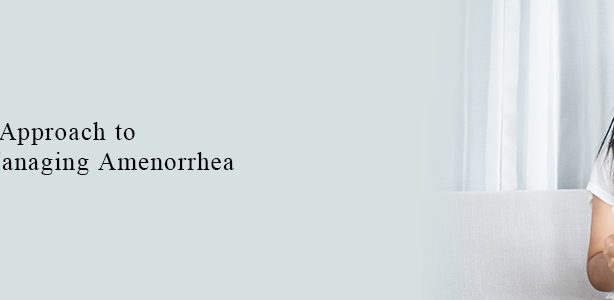Paralysis is a condition that has a lot of psychosocial impact on the patient. “A paralytic patient is unable to move the part of the affected body. Paralysis affects the muscles due to problems in the nervous system. It can affect any part of the complete body. There is a loss of motor skills permanently or temporarily. Sometimes, people also lose sensation in the affected part,” says Dr V. C. Ajith Kumar, Director and Principal Consultant of Ayush Ayurveda, Singapore, Little India branch. The doctor goes on to explain that there are three types of Paralysis _ Temporary, Pseudo and Permanent. He further explained about why these occur. Reasons are:
- A stroke or trauma
- Nerve injury or cerebral palsy
- A damaged nervous system
- Mental stress or REM sleep, to name a few
Dr Ajith Kumar warns that we should never fail to recognise the symptoms of paralysis as it can turn dangerous at times. Patients suffer a stroke and it is the symptoms that give us the hint of a paralytic attack. The doctor of Ayurveda throws light on the signs _ of numbness in certain parts of the body, muscle cramps, slurred speech and lack of hand-eye coordination and says that it is to identify and address these on time.
The doctor of Ayurveda is of the view that it is relatively easy to diagnose paralysis as the clear sign of the muscles not working can be seen. And in most cases, the causes of paralysis attacks are also easily evident. If the person suffers a stroke right before the attack then that is a sure sign but in some cases, there is no external factor or the factor is not that easy to detect.
The right diagnosis is very important, especially for patients whose nervous system is affected, informs Dr Aith Kumar, Ayush Ayurveda, Singapore. Therefore, for patients who have had a sudden attack of paralysis, a diagnosis has to be carried out to understand why the condition occurred. Some of the tests suggested by doctors for diagnosis include CT scan, X-ray, MRI, Myelography, Electromyography or a spinal tap.
Once the diagnosis is done, we can go boldly go ahead with the treatment, says Dr V. C. Ajth Kumar. Herbs and oils are the main treatment for this condition. Elucidating about the medicines and oils used in Ayurveda for Paralysis, the doctor says that it is a time-consuming method but we can be sure of the results. Let us now take a look at some of the medicines used in the treatment as suggested by the doctor of Ayurveda.
Rajasirobhushanam: This is a tablet that is usually taken along with honey and the dosage depends on the patient’s condition. It is used on patients who suffer from partial paralysis, facial paralysis, and tongue paralysis.
Rasarajarasa: It is given as a dose of 1 gram or 5 tablets along with ginger juice with honey.
Ekangaveerarasa: It is used on patients who suffer from nerve debility.
Vatagajamkusa: This tablet is given to patients suffering from hemiplegia and paraplegia. The dosage usually is one tablet twice a day along with a mixture of ginger juice or honey. It can even be taken along with a decoction of trikatuka, twice a day.
Sidhamakaradhwaja and Yogendra Rasa: These two medicines are said to rejuvenate the patient as they are tonics that address the nervous system directly. It quickly refreshes the patient.
Dr Ajith Kumar lists some of the other popular Ayurvedic medicines for paralysis _ Rasnadi quath, Medicated castor oil, Pippali mula, Chopcheeni churn, Brihat Vata Chintamani rasa and Ashwagandha churna.
The doctor of Ayurveda explains that some of these are also administered through the nostrils as part of Nasyam treatment. There are others that are given via an enema as part of Sneha Vasti. Dr Ajith Kumar insists on drinking 20-40 ml of radish oil twice a day. “A mixture of black pepper powder, sunti and honey is good to treat paralysis,” adds the doctor.
Ayurvedic massages with warm herbal oils greatly help to treat paralytic patients, points out the doctor of Ayurveda. Some Ayurvedic massages that could be beneficial to paralyzed patients are abhyanga Ayurvedic massages, padabhyanga and pizhichil.
The tailams that are used in the massage include the Masha Taila and Narayana Taila. The Masha Taila is a powerful Ayurveda oil used t relieve pain in the body. Generally, it is never left out while carrying out treatments such as Dhara and Shirovasti. It relieves pain in joints, neck, hands and legs.
The Narayana Taila is used to relax the muscles in Paralytic patients.
It is not just massage or oral medicines that are important to treat the condition. A vata-pacifying diet plan is a must to treat Paralysis, points out Dr Ajith Kumar of Ayush Ayurveda, Singapore. The doctor’s suggestions about a specific diet plan are:
- Easily digestible light meals are essential
- Warm foods should be preferred over cold
- Avoid Barley, rye and millet
- Vegetables like asparagus, beets, carrot and okra should be included.
- Avoid bitter and pungent flavours.
- Eating sweet or salty foods are good
Dr Ajith Kumar clearly points out that the system of medication in Ayurveda addresses the spiritual well-being of the patient and it is not about just the physical symptoms.
The doctor adds that mostly it is damage in the nervous system that triggers paralysis. But there are factors such as exposure to radiation or toxins, autoimmune diseases, tumours and spinal cord trauma and many more reasons that cause the condition.
“Ayurveda is good and has an edge over types of treatment to treat paralysis but total recovery from a paralytic attack may or may not be possible. It depends on the cause, extent of the injury and the triggering factors,” explains Dr Aiith Kumar. “If you are lucky you might recovery fully even if it is total paralysis,” concludes Dr Ajith Kumar.



